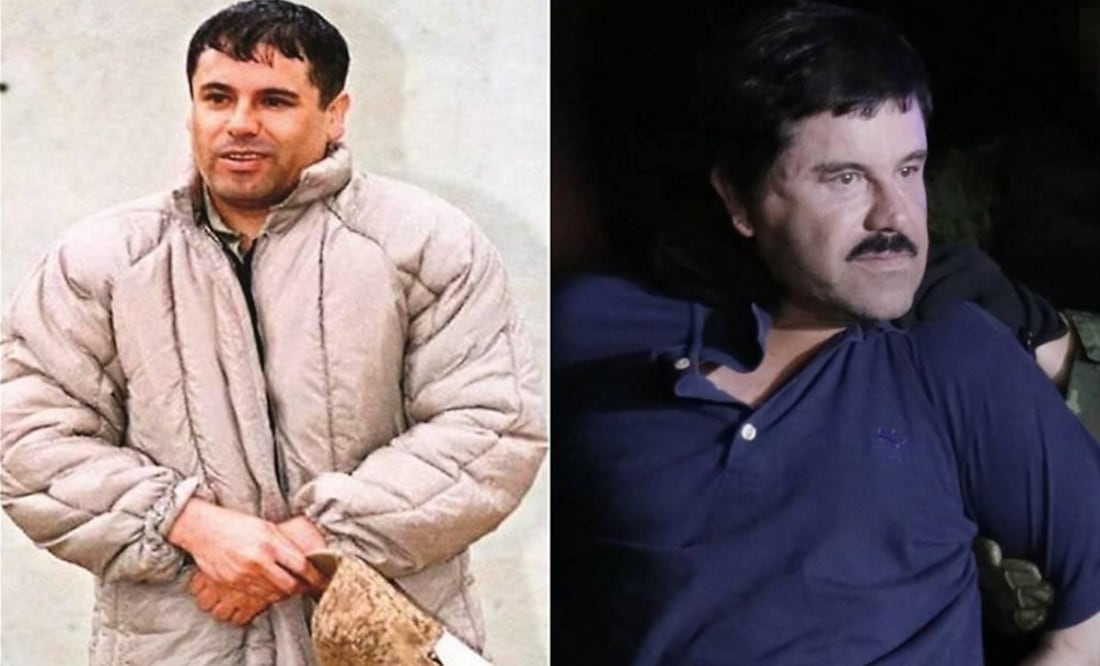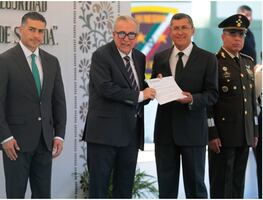Más Información

Videojuegos, el nuevo gancho del crimen para captar menores; los atraen con promesas de dinero y poder

“Vamos a dar apoyo a los pequeños agricultores por sequía en Sonora”; Claudia Sheinbaum instruye a Berdegué

Derrota de México en disputa por maíz transgénico contra EU; estos son los argumentos de Sheinbaum y AMLO para prohibirlo
Without the leadership of Joaquín “El Chapo” Guzmán, the Sinaloa cartel operates as a multinational company with presence in 54 countries in the Americas, Europe, Middle East, Asia, Africa and Oceania after displacing other criminal groups and creating alliances, according to DEA information and specialists.
"Of all the Mexican cartels, the Sinaloa Cartel has the broadest reach" said Rodney Benson, chief of intelligence for the U.S. Drug Enforcement Agency (DEA) in an appearance before the U.S. Congress.
Additionally, traffickers use the vast Atlantic Ocean to move, unhindered, to West Africa and Europe. "South American and Mexican traffickers have created alliances with the Caribbean drug cartels that provide them with transport, security, hiding places and other logistical support required for their drug trafficking operations," Benson explained.
According to the U.S. Department of Justice the Sinaloa Cartel operates as a corporation that is not exclusively controlled by “El Chapo”, because he is one of the most wanted criminals. The leadership has been divided between Ismael “El Mayo” Zambada García and Juan Esparragoza Moreno “El Azul”, and other successors have been appointed, including Dámaso López “El Mini Lic” and regional “managers” in the United States, Mexico, Canada and South America supervised by the children of Guzmán Loera.
Michael Braun, former chief of operations and former director of the Office of Special Intelligence of the DEA, said that "there is growing evidence that Mexican cartels also send cocaine to Europe via Africa, and could also be working hard to create permissive environments in West and North Africa to operate."
The European Police Office (Europol) reported that since 2007 Mexican cartels, especially the Sinaloa cartel, increased cocaine trafficking to the European Union via Spain, which led to tightened controls until the wave of immigration from the Middle East reduced supervision in that area.
The alliances are part of the strength of the Sinaloa Cartel, that has applied the same formula in Europe, Africa, Asia and the Middle East. In the case of the latter it has partnered with heroin trafficking organizations and pays to use risky routes.
DEA and Interpol investigations have revealed that Africa has become the meeting place to forge alliances and send chemical precursors to the Americas.
The DEA also found that the Sinaloa cartel uses representatives of its partners, the Revolutionary Armed Forces of Colombia (FARC), in West Africa to set up meetings in its name to negotiate with arms dealers known as "shadow facilitators."
These facilitators are in charge of drug trafficking, money laundering and forgery apart from controlling routes and smuggling products in different regions of Africa in coordination with intermediaries of the Sinaloa cartel.
The Sinaloa Cartel has created alliances with local groups to smuggle precursors that have enabled it to expand its operations in countries such as Mozambique, Congo, Ghana, Nigeria and Sierra Leone.
Edgardo Buscaglia, a researcher at Columbia University, says that the Sinaloa Cartel operates as a multinational in 54 countries through a franchise or criminal cells system, so the recapture of “El Chapo” does not affect its operation.
He added that there are enough Mexican drug traffickers arrested in the United States to dismantle the economic networks of the Sinaloa Cartel, Los Zetas and the Gulf cartel. "The Americans have done what they can, but they need legal cooperation from Mexico as well."







